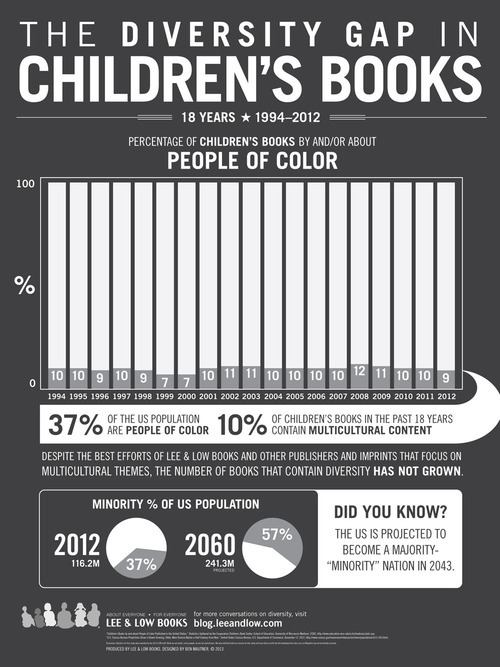Industry News
-
James Patterson to Give $1 Million to Independent Bookstores
In an interview with Shelf Awareness, he explained: “We’re going to help as many stores as possible, and to do so as fairly as possible. I’d also like to prioritize …
-
6 Children’s Books Featured on the 2012 Top Ten Challenged Books List
Dav Pilkey’s Captain Underpants book series captured the top spot for reasons that include “offensive language” and “unsuited for age group.” Peter Parnell and Justin Richardson’s And Tango Makes Three picture book …
-
This Week on Girls Scouts’ The Studio: ‘Ernest & Rebecca’ Series Author Guillaume Bianco
“I would advise aspiring writers to believe in what they’re doing and also to listen to advice, but to make sure to keep their personality and individuality. To be focused …
-
Barry Goldblatt Literary, LLC & the Vermont College of Fine Arts Form the Angela Johnson Scholarship for Writers of Color
“The $5,000 scholarship will be awarded to up to two students annually. With the hope of helping attract more writers of color to the leading MFA program for writers of …
-
Common Core and the Miracle of the Reading Brain at the CBC Annual Meeting
Both speakers feel that though there are flaws with the standards, their implementation will bring about many positive results. “Asserting that the Common Core represents the most significant ‘cultural shift’ …
-
CBC Diversity: Checking Boxes and Filling Blanks — Diversity and Inclusion in Children’s Literature
Guest post by educator and writer, Cory Silverberg.
The publisher Lee and Low recently mobilized social media (through the nifty infographic on the left) to jumpstart a discussion of diversity in children’s literature.
No surprise to anyone who is paying attention, while the US continues to undergo a significant demographic shift, diversity in children’s books is not reflecting what we the people look like today.
When we grow up not finding ourselves represented in popular media and educational curricula it becomes just a little harder to creatively imagine our futures, to explore our identities, to try on different ways of being; all of which are essential aspects of development.
Shame thrives in invisibility and silence. This is why representation is a critical aspect of diversity work.
But we need to also be mindful of how easily a complicated idea like diversity becomes code for one flattened out thing. That thing is usually the visual representation of race. As authors and educators, editors and publishers, we need to notice how this is missing the forest for the trees.
So as publishers start identifying even more specific ‘diversity markets’ and begin to make editorial “requests” to meet them, it seems like a good time to consider both the forest and the trees, and think about whether there’s a way to tend to both.
To accomplish this we need to think not only of diversity but also of inclusion.
Writing Diversity in Children’s Literature
In theory, diversity should refer to the range of varied experiences and ideas represented in a book, or more broadly in a publisher’s catalog.But all too often diversity becomes code for visual representation of races other than white.
One reason for this is that saying diversity when we mean race avoids calling out the publishing industry’s systemic racism, something most authors (who want to be published by this industry) are understandably uncomfortable doing.
When talk of diversity expands beyond race it still ends up looking very much like a checklist of compartmentalized identities. Can we get a child in a wheelchair? Check. Can the doctor be African American, and a woman? Check and check.
Representation matters, so this kind of diversity may have meaning, but as author and illustrator Maya Gonzalez pointed out so well in a recent post on First Voice multicultural children’s books, neither the characters nor the books guided by the checklist approach resonate in the same way with children.
There’s a difference between representation and diversity; that difference matters and needs to be talked about. For me, this is where inclusion comes in.
Writing Inclusion
Inclusion, as a value and a writing practice, isn’t about representing as many different things as possible. Instead the goal of inclusion is simply that readers find a space for themselves in our stories, and that they can bring all of who they are to the reading experience, or at least as much of who they are as they want or can.For adults I often describe the difference between diversity and inclusion as the difference between entering a room and seeing folks who look like you, and entering a room and feeling like you belong. One is usually necessary for the other, but they aren’t the same thing, and they don’t always follow.
For children, it’s the difference between opening a book and seeing someone who looks like you - understanding that this is the character your meant to feel connected to because of that one visually represented thing you have in common - and falling into a story as you are.
Diversity, as it’s often practiced, teaches children to compartmentalize their experiences of, say, race or gender or class. Inclusion creates a space for them to explore not only multiple parts of their experience but also how those experiences are woven together in their bodies and lives.
It’s the difference between having to check a box or fill in a blank in response to some question about yourself. Whenever possible, particularly with young kids, I would say we want them to fill in blanks, not check boxes.
Writing inclusion then, means leaving spaces, rather than adding boxes.
Thinking about diversity and inclusion should not be an either or proposition. We need both, desperately. We need more representation, not only of race, but also of gender and bodies, ideas and experience. As Gonzalez writes, we need more First Voice literature that engages all children and reflects the communities and cultures our children actually live in, which are never as monochromatic or monotone as so much children’s literature appears to be.
Writing inclusion, then, is about creating spaces where children can learn about and across differences, spaces where we learn about both what makes us unique and what connects us to each other.

Cory Silverberg is an educator and writer. He is working on a series of inclusive children’s books about sexuality and gender for Seven Stories Press. The first, What Makes a Baby, was released in May 2013. He can be found online at sexuality.about.com, where he writes about sexual education, culture, politics, and health.
-
CBC Diversity 101: Blurring the Lines Between Familiar and Foreign
Part I—A Focus on Narrative
Contributed to CBC Diversity by Uma Krishnaswami
My Personal ConnectionBack in the last century, when I dreamed of writing for young readers, the conventional wisdom about weaving foreign languages into fiction written in English went like this:
Don’t.
The stories I longed to write spanned continents. My characters often spoke in two languages, sometimes with varying degrees of fluidity. My narratives demanded a mixing of languages, reflecting the hybridity I was trying to show.
I plunged in, wanting to find my own answers. I wrote a lot of bad stories that earned the rejections they deserved. I kept asking myself, how can I represent this linguistic and cultural material while being truthful to the stories I’m trying to tell?
Stereotypes/Cliches/Tropes/ErrorsOver the years, I’ve tried many ways of weaving in snatches of the languages of India into the narrative in my books. I’ve settled on a few guidelines that make sense to me:
- Avoid stepping out of the story to translate a word or phrase. Instead try to make it clear in context.
- Avoid parenthetic comma phrases. More on this in this 2009 blog post, Parenthetic Comma Phrases, Anyone?
- Read the work aloud and listen—really listen—to it. Is there meaning constructed from the linguistic overlaps that would be missing without it?
- Trust the reader.
I want to emphasize that this is about narrative, not dialogue. Sprinkling foreign languages in dialogue—that’s for another conversation.
Things I’d Like to SeeRevisiting this subject now, I thought of books I’d loved in my childhood and teenage years—books that seemed to whisper to me confidentially, as if they’d been written for me alone. Was there something to be learned from revisiting those texts?
To find out, I took a look at two texts that were formative in my young reading life: The River by Rumer Godden, and “Rikki Tikki Tavi,” from Kipling’s The Jungle Book.
Here is a passage from The River in which young Harriet, living in India, is battling with Latin declensions. Talk about hybridity!
It is strange that their first Latin declension and conjugation should be of love and war:—
Bellum Amo
Bellum Amas
Bellum Amat
Belli Amamus
Bello Amatis
Bello Amant
“I can’t learn them,” said Harriet. “Do help me Bea. Let’s take one each and say them aloud, both at once.”
“Very well. Which will you have?”
“You had better have love,” said Harriet.
There is no translation. Sufficient that the subject is love and war. The Latin words are a litany of opposing forces. They can be thought of as music. Literal translation is irrelevant. In a sense, the lyrics are yet to come, in Harriet’s own story of longing and ambition, carelessness and betrayal. Elsewhere in The River, Godden scatters words like bazaar, ayah, and Diwali, un-italicized, trusting readers to understand them contextually. To contemporary readers, they may be no more alien than English words like bauhinia and jute. Most importantly, Godden limits the mixing of languages to suit her young viewpoint character’s perspective. European in India, Harriet would be privy to some elements of local language and culture but not others.
In “Rikki-Tikki-Tavi,” Rudyard Kipling names his animals with Hindi descriptors:
This is the story of the great war that Rikki-Tikki-Tavi fought singlehanded, through the bathrooms of the big bungalow in Segowlee cantonment. Darzee, the tailor-bird, helped him, and Chuchundra, the muskrat…
By ducking the need for translation, the narrative creates the illusion that all readers are privy to a hybrid English in which animals have names—itself a conceit—and those names are borrowed easily from the subcontinent. Illusion, in fiction, is everything.
In “Toomai of the Elephants,” Kipling relies more upon the narrative conventions of his time:
Kala Nag, which means Black Snake, had served the Indian government…
His mother, Radha Pyari—Radha the darling—who had been caught in the same drive…
Both stories boast a strong narrative voice, but the little mongoose’s journey is far more compelling.
Surprisingly, we still seem to rely upon Victorian conventions of parenthetic translation. But there are alternatives.
Look how the word “pakora” occurs in the opening pages of Chitra Banerjee Divakaruni’s novel, The Conch Bearer:
“…maybe, thought Anand with a grin, it was just his boss, Haru, the tea stall’s owner, frying onion pakoras once again in stale peanut oil!”
Later:
“The smell of the hot pakoras he was carrying was driving Anand crazy. He was so hungry! He had to clench his teeth hard to resist the urge to sneak a pakora—just one—into his mouth.”
We’re engaged by sensory markers like food smells, clenching of teeth, and hunger. Defining the pakora is beside the point.
Suggested Reading- In The Wild Book, Margarita Engle scatters words like reconcentración, indio, guajira through delicate verse stanzas. She uses italics but clarifies contextually and without sacrificing rhythm and pacing.
- Rickshaw. Longyi. Mua. Peh. These few words serve to pin the Burmese setting in place in Bamboo People by Mitali Perkins.
- In Kashmira Sheth’s The No-Dogs Allowed Rule, the first person narration invites the reader to engage with the family’s food, habits, and culture, with Hindi words thrown in like dashes of turmeric.
These books would not be the same without their linguistic blends. Hybridity seems best achieved when the dream world of the story is maintained, when the author’s intention is not overly visible, when the writer trusts the reader enough to resist the impulse to explain everything.
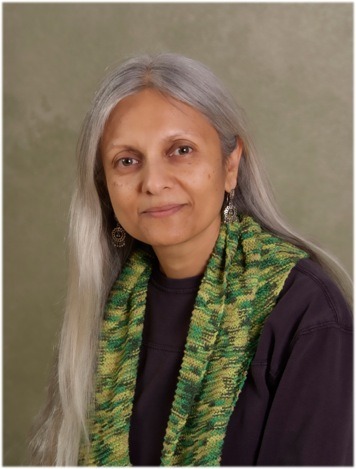
Uma Krishnaswami is the author of The Grand Plan to Fix Everything and The Problem With Being Slightly Heroic, both from Atheneum Books for Young Readers.
-
Do the Greatest Fictional Villains Come From Kid Lit?
Mockingbird Author Kathryn Erskine named Lord Voldemort from the Harry Potter series citing that “what makes him so creepy is that he and Harry are connected. The idea that we …
-
Beth Revis on the Importance of Representation
“I know part of the reason why I’m more aware of the world around me, its diversity and its prejudice, is because of my friends, the ones I’ve made in …
-
E-Novellas Expand Popular Stories
E-novellas, digital stories or short novels that expand on popular, traditionally-published YA books, have become increasingly popular — with writers such as Cassandra Clare and Lauren Oliver helping to further …
-
This Week on Girls Scouts’ The Studio: ‘My Life in Pink and Green’ Author Lisa Greenwald
“Write every day, even if it’s just one sentence. Keep a journal and write whatever comes to mind. Don’t worry about grammar or spelling or punctuation. Just write. Read as …
-
2013 Picture Book Month Champions Revealed
Past participants include former National Ambassador for Young People’s Literature Jon Scieszka, Newbery Honor Winner Kathi Appelt, and Chu’s Day Illustrator Adam Rex. This year’s champions are: David Adler, Dianna …
-
Are Nightly Bedtime Stories a Thing of the Past?
“Just about every parent in the US has heard about the importance of regular reading with young children. Only one–third of parents with kids age eight and younger, however, make …
-
CBC Diversity: Authentically Me
An It’s Complicated! — Authentic Voices guest post by author, Sharon G. Flake.Growing up I did not see the value in being my authentic self. I was skinny, long-legged, and shy with big rabbit teeth. Some adults and kids even called me Olive Oyl (Popeye’s Girlfriend) —enough said?
I remember wanting to be like my neighbor Yolonda. She could wear a blanket and look red-carpet ready. I on the other hand, could never quite make fashion work, even today.
By middle school comparing myself to others was a fine art. There was the blond I sat next to who had the most exquisite handwriting. For years I tried to emulate it. In high school there was Pam. She absorbed information like a sponge. Earning high A’s with ease or so it seemed. I would study until my brain froze, only to end up with a lack luster B or C.
Thank God for my freshmen college English class. Before then, I do not recall feeling one-way or the other about writing. Yet somehow my professor lit a flame in me. No longer did I need to be a carbon copy of others, at least on paper. My writing was opinionated, fearless, and political. I was determined to use my work to give voice to the powerless. And because I loved the community I grew up in, I never hesitated to draw on its strengths, challenges and uniqueness.
Later on I found that being true to myself as a writer also helped me to appreciate the uniqueness of my writing process. I kept silent about it for years. You see, I do not write from an outline. I do not know who my characters will be or what my story is or where it is going until the people and places emerge line by line. I get on my computer, like a cowboy on a horse, and ride. I let the story take me where it will. But like any good rider, I am in control of the reigns. Even using my boots to nudge the story in another direction if pushy characters or bad plotting try to take over.
I do know two things before I begin a novel, however. I want to create memorable characters with strong connections to family and community. And I want everyone to find themselves in my stories.
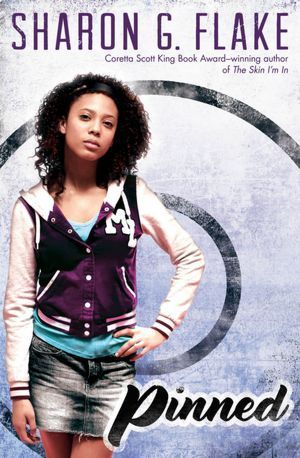
I have a reputation for creating diverse characters: A teacher with an unusual birth mark. A 16-year-old boy about to be married. A struggling reader and star wrestler in love with a gifted, disabled student.
My characters arise from my willingness to be authentic and my refusal to stereotype or limit them. In many ways, they probably have the courage I wish I had in my youth. They voice their thoughts without reservations, in clever, understandable ways that keep readers engaged. Because of their forthrightness, young readers feel empowered to open up and be themselves also. Take the elementary school student who formed a group for gay students called The Skin I’m In. Or the Caucasian girl who said one of my African-American male characters was her hero. She felt he had given her advice about boys her absent father hadn’t.
Here’s what I know for sure. To be true to oneself and create authentic stories, a writer must begin from a place of love and appreciation. Love for the craft. Love for the characters and places she or he wishes to write about. They must also develop an appreciation for imperfection and hard work. For to create good stories, takes all of this and more, even using and coming to terms with the parts of ourselves that are still smarting. That feels small, little and inauthentic—the real ‘us’ behind the stories we craft.
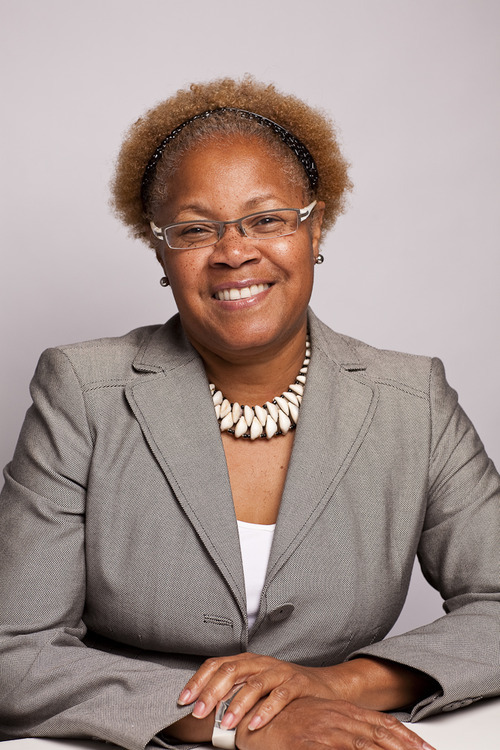
Sharon G. Flake was born in Philadelphia, PA, and have resided in Pittsburgh, PA, for thirty years. She graduated from the University of Pittsburgh in 1978, with a B.A. in English. Flake was once a house parent, a counselor with youth placed in foster care, and a public relations representative. She is the author of eight books: Pinned (2012), You Don’t Even Know Me (2010), The Broken Bike Boy and the Queen of 33rd Street (2007), Bang! (2005), Who Am I Without Him? Short Stories About Boys and the Girls in Their Lives (2004), Begging for Change (2003), Money Hungry (2002), and The Skin I’m In (1998).
-
Common Core Standards Provoke Heated Debate
Publishers Weekly’s Common Core Column launches with a survey of the new standard’s benefits and drawbacks, an interview with ALA President Barbara Stripling, and, given that “two-thirds of respondents to …
-
Children’s Illustrators Contribute to ‘We Art Boston’ Fundraiser
Founded by author and illustrator Joe McKendry, We Art Boston is “an art auction showcasing the work of multiple artists to benefit the Boston Children’s Hospital Emergency and Trauma Fund” …
-
CBC Diversity: First, Know Yourself
An It’s Complicated! — Authentic Voices guest post by author, Diana López.“Write about picking cotton,” my family said when they heard I wanted to be a writer. “Write about how we used the fabric from flour sacks to make our dresses, and how Grandma hates fish because that’s all she ate during the Depression, since it didn’t cost anything for them to go fishing for food.”
Closely examine my family, or any family, and you’ll discover all the drama of a telenovela. Naturally, I wanted to write about being chastised for speaking Spanish, about living on a ranch in San Diego, about my grandmother being “Rosita the Riveter” during World War II. I tried to write those stories. But my only experience working the land comes from fifteen minutes in a field off Old Robstown Road where my parents showed us how to pick cotton. It was interesting to feel the texture, so unlike a T-shirt, which is what I had imagined.
My grandmother might have hated fish, but I loved it. We had a boat that we’d take to Laguna Madre, where we’d compete to see who could catch the most, the biggest, or the strangest. (Once, my brother caught a seagull when it chomped on the bait as he cast.) Back home, Dad filleted the fish in the backyard, the cats begging and fighting over scraps. Then, Mom used cornmeal batter to fry the fish, and we ate, delicately picking meat off tiny bones.
All this to say that my family’s experiences and the emotions associated with them are not exactly mine.
So what do I know about writing from an authentic Mexican American perspective? Of course, I do write from that perspective because that’s who I am, but one of the struggles I’ve faced is matching the expectations of two groups of readers—brown and white. Interestingly, both often expect stories about characters who are recent immigrants, who speak Spanish, who are gardeners, maids, or nannies, and when I write stories about people who fall outside these categories, they are judged as “too mainstream” or “not Mexican enough.”
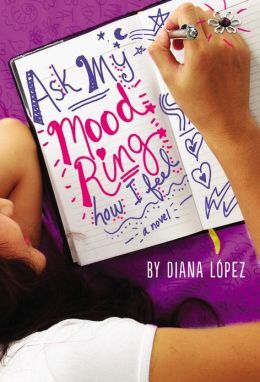
While writing about the “authentic” Latino experience is important, I fear that sometimes other, equally authentic stories get overlooked. For me, these are the stories inspired by my own childhood and by the experiences of my students and sobrinos. Like me, they don’t know what it’s like to work in a field, to go hungry, to use the fabric from flour sacks to make their dresses. Like me, they don’t know what it’s like to speak Spanish beyond a few phrases, and they feel saddened by the inability to have deep conversations with their Spanish-only grandparents but also proud to be fluent, even persuasive, in the English they hear at school, in the neighborhood, on TV.
I used to worry that I wasn’t fulfilling my obligation to write what would be unquestionably categorized as Mexican American literature. But then I had this insight. The Latinos in this country are wonderfully diverse. They come from Mexico, Cuba, and Columbia; they come from San Antonio, Los Angeles, and Winston-Salem. They are gardeners, maids, nannies, dentists, engineers, and mayors.
For those aspiring writers out there, accept that your experience may not fit neatly into a category because in order to write an authentic story, you must first understand and be true to yourself.
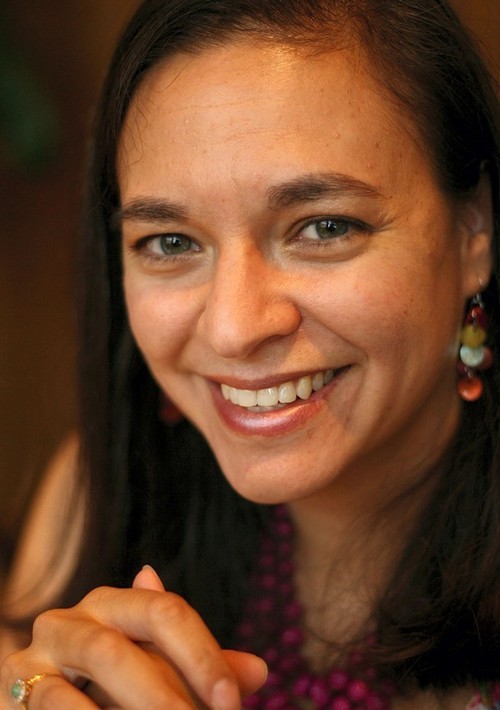
Diana López, author of Confetti Girl, Choke, and Ask My Mood Ring How I Feel.
-
Four Actors Hired for the ‘Mockingjay’ Movie Cast
Julianne Moore, a Golden Globe-winning actress, will play District 13 President Alma Coin. Natalie Dormer, regularly seen on HBO’s Game of Thrones, will take on the role of Filmmaker Cressida. …
-
CBC Diversity: It Doesn’t Have to Be True to Be Truthful
An It’s Complicated! — Authentic Voices guest post by author, Alex London.Authenticity, that vicious guard-dog of truth, bedevils a teller of stories every step of the way. It is not enough to feel the truth of what you write or even to know it. The reader must feel you are right in the telling of it. An inauthentic voice can make even an honest memoir feel like a lie, while an authentic voice can make a whole pack of lies seem true. Just look to James Frey’s first book for proof of that.
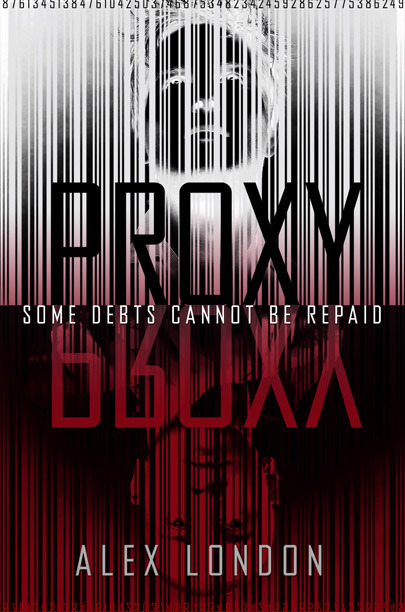
In writing my YA debut, Proxy, I struggled with authenticity early on. As a gay man who was once a gay teen, I had no trouble with my protagonist’s sexuality. I well-remembered the unrequited longings, the suppressed desire for a kiss that sometimes broke out as rage, and the feeling, ever-present, that my sexuality did not define me and that I could not let the world tell me it did.
Syd, one of two main characters in Proxy, contains much of the truth of my own experience and the challenge there was the common challenge to all writing: to make sure I rendered him as vividly as I would want to be rendered myself. I had memories to draw on, fragmented conversations with my straight best-friend, felt truths that I could, with effort, put into words.
The tricky parts were those other pieces of the puzzle that inform the identity of my protagonist, Syd. He is poor, orphaned, dark-skinned. I am none of those things. I share much more in common with the privileged pretty-boy of the story, Knox, who, other than being (quite) heterosexual, resembles young me far more than I’m comfortable admitting. I wrote his privilege to explore, question, reconcile, and problematize my own.
But Syd…we share so little in common. Just because we might have the same romantic inclinations, I couldn’t presume his way of being in the world was anything like mine. To do so would have done the character, and the countless young people in our world whose lives do, to an extent, resemble his, a great disservice. Though set in a dystopian future, I drew much of the world of Proxy from my experiences as a journalist in refugee camps and urban slums around the world, where poverty, power, and competition crash into the free market and send earthquakes through the lives of millions of our world’s young. Syd shares more with those real-life children than with any ghosts of my own teenage years.
So how to write him authentically? At first, I imagined myself a reporter, working once more with the young people I’d met and written about, the child soldiers in the Eastern Congo, the migrants along the Thai-Burma border, the isolated Roma of Kosovo and Bosnia. I began writing Syd for them, with as much empathy and imagination as I could. I quickly realized I could not write this character as a stand-in for any assumptions I had about any group. He’d be a hollow cut out of a person. While those years of research helped me capture the feeling of the slum I invented for Syd to live in, I had to make the character himself whole, with contradictions and complexities born of his circumstances but also born of his unique humanity. He would be ‘authentic’ if I could make him live.
I found my way to Syd’s voice and to all the voices within Proxy the same way any character is conjured from the ether. I tried to imagine him fully. He was not me, nor a stand in for anyone else. He was himself.
It was in writing Syd that I truly came to understand a secret to writing authentically is not to have lived the life your character inhabits—which is impossible in science fiction, and ridiculously limiting in all creative story telling—nor can it simply be produced by years of research—although research sure does help. Authenticity may be the guard-dog of truth, but it can be tamed by a simple technique that’s as challenging and necessary in fiction as in real life: empathy. Authenticity is the end result of writer putting in the work of empathy.
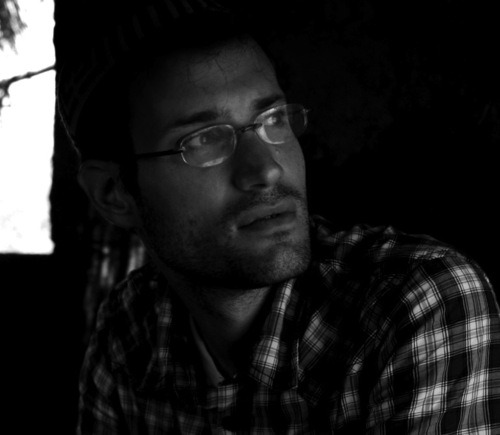
Alex London, the author of Proxy, writes books for adults, children and teens. At one time a journalist who traveled the world reporting from conflict zones and refugee camps, he now is a full time novelist living in Brooklyn. You can visit Alex London at www.calexanderlondon.com
-
Two New YA Books Revisit 19th Century Classics
Summer is officially over: two beloved Gothic novels, Emily Brontë’s Wuthering Heights and Mary Shelley’s Frankenstein are emerging from their graves just in time for Halloween. The Los Angeles Times reports, “Australian …







